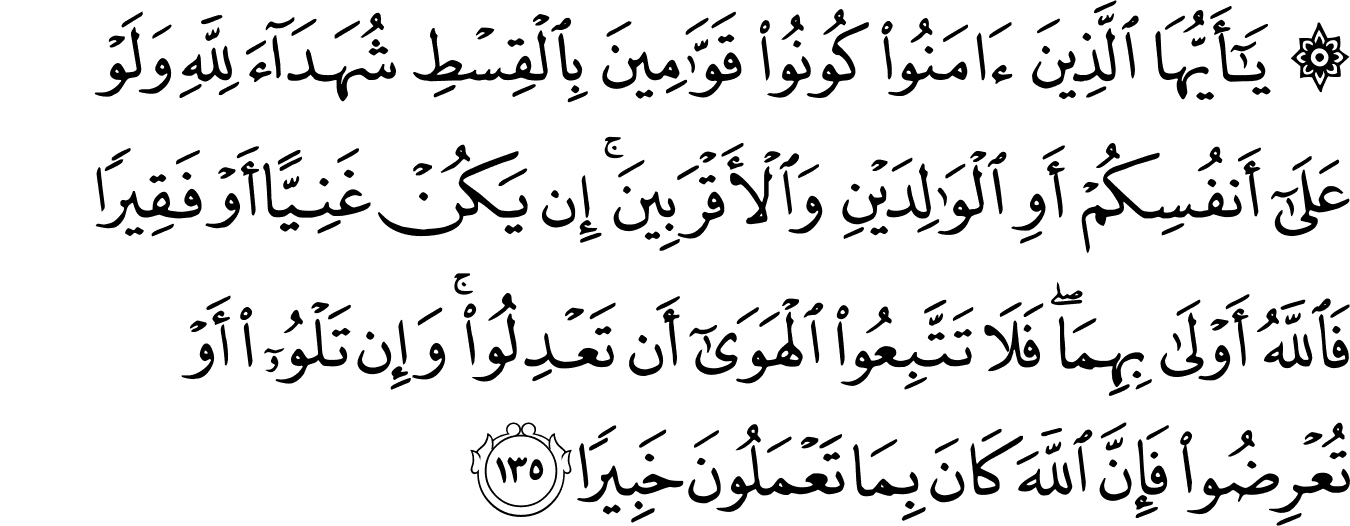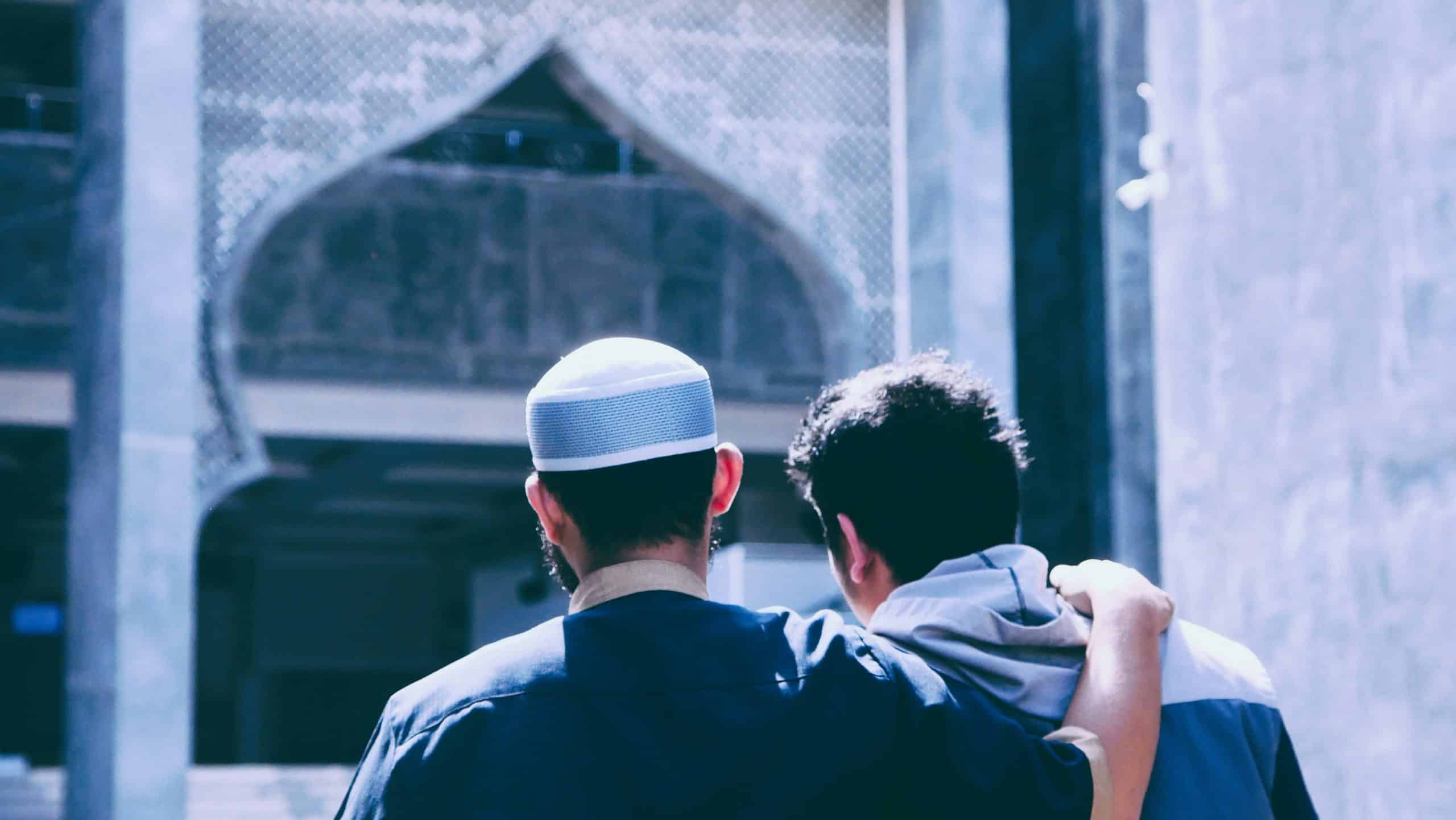#Life
Processing Spiritual Abuse In Islam: A Comprehensive Guide For Individuals, Communities, And Organizations

Published

The issue of spiritual abuse by religious leaders in Muslim communities is quite a painful matter. This article explores the nature of spiritual abuse, its impact on individuals and communities and their level of faith, and encourages actionable steps for individuals, communities, and organizations.
Understanding Spiritual Abuse in Islamic Contexts
Spiritual abuse occurs when an individual in a religious role of power misuses their authority and trust to manipulate, control, or exploit others. They conduct abusive actions which they feel are justified under the guise of religious or spiritual guidance. Due to the differences in power and authority, spiritual abuse often goes unreported and unaddressed. It is also widely underrepresented in statistics, due to stigma and the further categorization of the various manifestations of spiritual abuse (sexual, physical, emotional, financial, etc.).
Spiritual abuse is a profound violation of the “amaanah” or trust that religious leaders hold. In Islamic tradition, leaders are expected to serve as exemplars for their communities. When this trust is violated, the impact on victims and communities is immense. Misuse of authority not only causes immediate harm to the victim, but also destroys trust within a community as they begin to question their Islamic leadership, making it difficult for members to seek guidance from religious leaders in the future.
Recognizing Signs of Spiritual Abuse for Oneself or Others
Keep supporting MuslimMatters for the sake of Allah
Alhamdulillah, we're at over 850 supporters. Help us get to 900 supporters this month. All it takes is a small gift from a reader like you to keep us going, for just $2 / month.
The Prophet (SAW) has taught us the best of deeds are those that done consistently, even if they are small. Click here to support MuslimMatters with a monthly donation of $2 per month. Set it and collect blessings from Allah (swt) for the khayr you're supporting without thinking about it.
Identifying spiritual abuse can be challenging, especially when it involves someone trusted for guidance and religious knowledge. Victims might question themselves and their own intuition, or feel hesitant to believe or label what they are going through as abuse. Recognizing signs of spiritual abuse is essential for protecting oneself and others, as it empowers individuals to take proactive steps toward seeking help. Here are some key indicators:
- Emotional Manipulation: Abusers control behaviour by using guilt, fear, or shame, often distorting religious teachings and using fear of divine punishment to serve their own agendas.
- Financial Exploitation: Coercing individuals into financial contributions, presented as religious obligations or promises of spiritual rewards when it is for the abuser’s personal gain.
- Sexual Misconduct: Engaging in inappropriate sexual behaviour or relationships. This includes any inappropriate interaction done in khalwa (seclusion) whether it is alone in person or through virtual ‘seclusion’ such as texting, Snapchat, Telegram, etc. Be wary of any kind of unlawful interaction including flirtatious or inappropriate comments, jokes and informal interactions, even if it is from someone you believe to be pious and a religious leader.
- Isolation: Enforcing separation from family, friends, or the community to increase the victim’s dependency on the abuser.
- Controlling Choices and Discouraging Questions: Demanding blind obedience and discouraging questions or independent thought. Interfering in personal decisions, such as marriage, career, or lifestyle, under the guise of religious guidance. This level of control seeks to exert guilt and even shame for one using independent thought.
- Creating Dependency: Giving special attention to certain individuals and positioning themselves as the only source of religious or spiritual guidance.
- Secretive and Unusual Behaviour Framed as Religious Obligation: Conducting private or secluded interactions that lack transparency, and making strange or uncomfortable requests (financial, emotional, or physical) by framing them as religious duties. Always seek a second opinion if someone is trying to indicate that these behaviours are Islamic obligations, as they are not.
Abusers seek to benefit off the assumption that they are the sole source for Islamic knowledge for a vulnerable person who trusts them enough to not question these behaviours, and would not question them or know better.
Whether noticing these indicators for oneself or observing them in others, it is vital to approach the situation with compassion and encourage seeking help. Abuse, regardless of the form it takes, has no place in any faith and should be addressed to protect both individual well-being and the integrity of the community.
Processing Spiritual Abuse

Unpacking and processing spiritual abuse [PC: Susan Wilkinson (unsplash)]
These effects go beyond individuals, affecting entire Muslim communities as they face the painful reality of betrayal by those who they expected to uphold Islamic ethics. This breach of trust creates a culture of suspicion toward religious leaders and, if ignored, perpetuates trauma that leaves other members vulnerable.
The Prophet Muhammad
warned us:
“There will emerge a people from (the East) who will recite the Qur’an but it will not go beyond their throats. They will pass through Islam as an arrow passes through game.” [Sahih al-Bukhari, Hadith 7562]
This hadith reminds us that faith is not merely external actions but that it requires ethical behaviour aligned with true Islamic values, and also highlights for us that while Islam itself remains infallible, its followers are human and fallible. Recognizing that abuse results from individual failures, not Islam’s teachings, can help victims and communities preserve their faith.
In this worldly life, every individual faces tests, which vary in nature and intensity. Some may be tested with personal hardships, while others face the test of authority and the ethical use of power. The test of power is unique as those in positions of power are entrusted with the guidance of others but also are responsible for upholding moral integrity.
If a religious leader or imam is using their position to exert control over others, know that this is a test they are failing.
This misuse of authority is a betrayal of trust and an abuse of their responsibility before Allah 
Although reconciling Islamic principles with the harm caused by spiritual abuse can be painful, it’s critical to understand that Islam firmly condemns injustice and oppression. Processing spiritual abuse with the understanding that Islamic principles promote justice and compassion can provide the strength needed for healing and hope.
Islamic Ethics of Constructive Conversations
When handling allegations of abuse, especially in cases outside of formal legal procedure, Islamic ethics emphasize constructive, justice-centred conversations. The Qur’an calls for upholding justice even when it is difficult, stating:
“O you who have believed, be persistently standing firm in justice, witnesses for Allah , even if it be against yourselves or parents and relatives. Whether one is rich or poor, Allah is more worthy of both. So follow not [personal] inclination, lest you not be just. And if you distort [your testimony] or refuse [to give it], then indeed Allah is ever, with what you do, Acquainted.” [Surah An-Nisa; 4:135]
This verse reminds us that we as Muslims are accountable for confronting injustice, even within our own communities.

Respond with compassion and sensitivity [PC: Masjid MABA (unsplash)]
For instance, there are examples from the time of the Prophet Muhammad 
When a woman from the influential Makhzum tribe committed theft, some Companions hesitated to enforce the punishment due to her family’s status. However, the Prophet
emphasized the importance of justice, saying, “By Allah, if Fatimah, the daughter of Muhammad, were to steal, I would have her hand cut off.” [Sahih Sunan an-Nasa’i 4891]
This highlights that justice is upheld regardless of an individual’s status or position.
Similarly, during the Caliphate of Umar ibn al-Khattab 




Dr. Ingrid Mattson also emphasizes in her article the principle of default non-liability within Islamic legal tradition, whereby individuals are presumed non-liable unless proven otherwise (Mattson, 2024)2Mattson, R. (2024). Accountability in the Islamic Tradition. In Hurma Project Research Conference, Chicago, IL.. This principle was critical in ensuring that religious and political leaders exercised their responsibilities with integrity, as any misuse of power would face public scrutiny and potential consequences. Dr. Mattson notes that in Islamic history, accountability mechanisms were established to hold public figures and religious authorities responsible for their actions. Leaders could even face suspension during investigations to prevent further harm to the community.
The Prophet Muhammad
also provided guidance on addressing oppressive behaviours within the community. He instructed, “Help your brother, whether he is an oppressor or oppressed.” When asked how to help an oppressor, he replied, “By preventing him from oppressing others.” [Sahih al-Bukhari, Hadith 6952]
This clarifies the responsibility to address and rectify harm caused by others, regardless of their status within the community.
The Qur’an emphasizes personal responsibility:
“For each one are successive [angels] before and behind him who protect him by the decree of Allah. Indeed, Allah will not change the condition of a people until they change what is in themselves. And when Allah intends for a people ill, there is no repelling it. And there is not for them besides Him any patron.” [Surah Ar-Ra’d; 13:11].
Spiritual abuse violates the rights (haqq) of others, and it is our collective duty to address these injustices actively, because abusing the rights of others (huqooq-ul-ibaad) is a sin for which we are accountable before Allah 
These examples illustrate that Islamic tradition advocates for justice, accountability, and transparency, particularly when harm to others is involved. By upholding these values, Muslims can create constructive conversations about protecting the vulnerable, upholding trust, and fostering a community that is safe, compassionate, and rooted in justice.
Moving Forward: Steps for Individuals, Communities, and Organizations
To address and prevent spiritual abuse effectively, it is essential that individuals, communities, and organizations take specific, proactive steps. Each group has a unique role to play, but together, their efforts can foster an environment where abuse is recognized, prevented, and addressed with compassion and justice. These additional calls to action emphasize transparency, accountability, and the restoration of trust within communities.
For Individuals and Communities
- Recognizing and Understanding Spiritual Abuse: Education is a powerful tool for both individuals and communities. Learning to identify signs of spiritual abuse and understanding that such abuse contradicts Islamic values empowers individuals to protect themselves and others. Victims may feel guilt or confusion about standing against spiritual abuse, due to the fear that speaking out challenges religious authority. However, recognizing that Islam condemns oppression, and seeking justice is an act of faith helps individuals see that reporting abuse is a right and duty, while communities benefit from a shared commitment to upholding these values. Victims are helping prevent future harm by coming forward, and communities should foster an environment that values truth over silence. Individuals may seek guidance from supportive organizations or trusted individuals who can ensure confidentiality and compassionate handling.
- Seeking Professional Support: Accessing professional mental health support is essential for healing from spiritual abuse. Specialized counselling can help individuals process their experiences, rebuild confidence, and reconnect with their faith in a safe environment. Communities should encourage and facilitate access to culturally and religiously sensitive mental health services that address the specific needs of Muslims.
Many organizations provide such support:
- North America:
- Canadian Muslim Counselling: Offers Islamically aligned counselling services for Muslims in Canada.
- Khalil Center: A center advancing the practice of psychology rooted in Islamic principles, offering integrated mental health services.
- Nisa Helpline: Free, confidential counselling for Muslim women, connecting them with mental health professionals.
- Ruh Care: An online platform providing accessible, faith-based, culturally responsive mental health care.
- United Kingdom:
- Ihsaan Therapeutic Services: Provides psychological therapies compatible with Islamic values.
- Salamah Integrative Therapy Services: Offers integrative counselling within an Islamic framework.
- Sakoon Counselling: Provides Islamic counselling services, taking into account faith, culture, and family dynamics.
- Muslim Counsellor and Psychotherapist Network (MCAPN): A directory of Muslim counsellors and psychologists.
- The Islamic Council UK (ICUK): Offers Islamic counselling from specialists in psychology and Islamic law.
- Responding with Compassion and Sensitivity: Communities must respond with empathy when a member reports abuse. Avoid instinctively discrediting the individual or dismissing their experience, as this reaction only deepens trauma and discourages others from seeking help. Establish a support network or council within the community where members can turn for confidential assistance. This group can help connect the individual to appropriate resources or authorities, bridging personal pain with collective justice.
- Encouraging Transparency and Accountability: Communities must foster a culture of transparency and accountability, including setting clear expectations for ethical conduct and holding leaders accountable when trust is violated. Establishing open channels for feedback and concerns, and organizing regular community meetings allows members to voice issues without fear of retribution in order to rebuild trust.
For Organizations
- Establishing Preventative Protocols: Organizations and religious institutions have a responsibility to create environments that prioritize safety and transparency. This includes implementing rigorous preventive measures such as comprehensive background checks for all staff, clear behavioural guidelines, and enforced policies regarding interactions between leaders and congregants.
- Instituting Clear Ethical Guidelines and Training: Organizations should develop and enforce clear ethical guidelines that define acceptable behaviour and outline consequences for misconduct. Providing regular training on professional ethics, boundaries, and abuse prevention for all leaders and staff is crucial. This ongoing education ensures that everyone is aware of their responsibilities and the standards to which they are held.
- Implementing Accountability Mechanisms: Establishing independent oversight committees or boards can help monitor the conduct of religious leaders and staff. These bodies should operate transparently and be empowered to investigate allegations of misconduct thoroughly and impartially.
- Creating Accessible Reporting Systems: Organizations must have safe avenues for accessible, confidential reporting systems whose goal is to protect those who come forward and provide clear procedures for investigating and addressing allegations.
- Restorative Justice and Reconciliation: In cases where abuse has occurred, organizations should facilitate processes for restorative justice and reconciliation when appropriate. This involves acknowledging the harm done, taking steps to repair trust, and implementing measures to prevent future abuses. Engaging with victims respectfully and providing support throughout the process is essential for healing.
- Strengthening Female Scholarship and Leadership: Encouraging and supporting female scholarship in religious spaces not only diversifies perspectives but also provides additional resources for individuals seeking guidance. Women’s active participation in leadership roles can enhance oversight and create more inclusive environments. Dr. Sheibani highlights that including women in leadership positions can help address gender-specific issues more effectively and contribute to preventing abuse.
- Public Response with Integrity and Sensitivity: When addressing cases publicly, organizations should handle the situation with sensitivity, respect for all parties involved, and a commitment to justice. Transparent communication demonstrates accountability and helps restore trust within the community. Organizations should avoid defensiveness or minimizing the issue, instead focusing on steps being taken to address the situation and prevent future occurrences.
- Community Engagement and Education: Organizations should actively engage the community in discussions programs and discussions about holistic well-being, spiritual abuse, ethical leadership and the rights of congregants. Educational initiatives, workshops, lectures and khutbahs can raise awareness, normalize conversations around spiritual abuse, reduce stigma around reporting abuse, and promote a collective understanding of the importance of safeguarding trust. Promoting holistic education around healthy relationships, consent, and self-respect encourages individuals to recognize abuse and understand the importance of protecting personal boundaries, reinforcing the community’s commitment to a safe and respectful environment.
Shared Responsibility and Commitment to Justice
Ultimately, our shared responsibility as Muslims is to uphold justice, mercy, and compassion within our communities. Protecting vulnerable members and preventing further harm should be our priority, without being distracted by minor disagreements over specific approaches. Our actions reflect our commitment to the values of Islam—justice, integrity, and compassion. By actively addressing spiritual abuse and supporting victims, we strengthen our communities and maintain the dignity of our faith. Processing spiritual abuse in a manner that restores trust requires us all to uphold the principles that bind us together as a community.
Related:
Blurred Lines: Women, “Celebrity” Shaykhs, and Spiritual Abuse
Keep supporting MuslimMatters for the sake of Allah
Alhamdulillah, we're at over 850 supporters. Help us get to 900 supporters this month. All it takes is a small gift from a reader like you to keep us going, for just $2 / month.
The Prophet (SAW) has taught us the best of deeds are those that done consistently, even if they are small. Click here to support MuslimMatters with a monthly donation of $2 per month. Set it and collect blessings from Allah (swt) for the khayr you're supporting without thinking about it.
Ayesha is a psychotherapist and social worker with Canadian Muslim Counselling (https://muslimcounselling.ca/). She holds a Master’s in Social Work from the University of Windsor, and is registered with the Ontario College of Social Workers and Social Service Workers (OCSWSSW). These credentials accompany her Bachelor’s of Social Work from Trent University and Social Service Worker diploma from Durham College. She is also trained in Gottman Method Levels I and II as a couples therapist. She brings over a decade of experience in diverse environments focused on enhancing the quality of life for individuals, couples and families from various intersectional backgrounds, degrees of power, privilege and marginalization. Her care continuum is client-centred, emotion-focused, strengths-based, anti-oppressive, anti-racist and trauma-informed.


The Sandwich Carers: Navigating The Islamic Obligation Of Eldercare

Far Away [Part 4] – A Safe Place

Why I Can’t Leave Surah Al-Mulk Hanging Every Night

The Muslim Book Awards 2025 Winners

Op-Ed: Understanding The Somaliland Recognition Decision – A Counterargument To The Prevailing Muslim Consensus

Restoring Balance In An Individualized Society: The Islamic Perspective on Parent-Child Relationships

Ahmed Al-Ahmed And The Meaning Of Courage

Faith and Algorithms: From an Ethical Framework for Islamic AI to Practical Application

Far Away [Part 1] – Five Animals

The Limits Of Obedience In Marriage: A Hanafi Legal Perspective

[Dhul Hijjah Series] Calling Upon the Divine: The Art of Du’a (Part 1)

IOK Ramadan 2025: Four Steps | Sh Zaid Khan

IOK Ramadan 2025: Do Your Best | Sh Zaid Khan

IOK Ramadan 2025: Giving Preference to Others | Sh Zaid Khan

IOK Ramadan 2025: Which Group Are We In? | Sh Zaid Khan
MuslimMatters NewsLetter in Your Inbox
Sign up below to get started
Trending
-
#Islam3 weeks ago
Restoring Balance In An Individualized Society: The Islamic Perspective on Parent-Child Relationships
-
#Current Affairs4 weeks ago
Ahmed Al-Ahmed And The Meaning Of Courage
-
#Life1 month ago
AI And The Dajjal Consciousness: Why We Need To Value Authentic Islamic Knowledge In An Age Of Convincing Deception
-
#Culture1 month ago
Moonshot [Part 32] – FINAL CHAPTER: A Man On A Mission










Uzair Ali
November 30, 2024 at 2:07 AM
Processing spiritual abuse in Islam forms the foundation for protecting the sound psyche, emotions, and beliefs of individuals. That aspect of Islam that relates the concept of respect, consideration and justice contradicts in practice the spiritual abuse. Spiritual abuse addressed by creating supportive and empowering environments to heal, be rewarded with justice, or the recovery of faith or otherwise. It is very important for communities and organizations to understand the signs of spiritual abuse, guide based on Islamic principles, and empower individuals to seek help while maintaining their dignity and connection to faith.